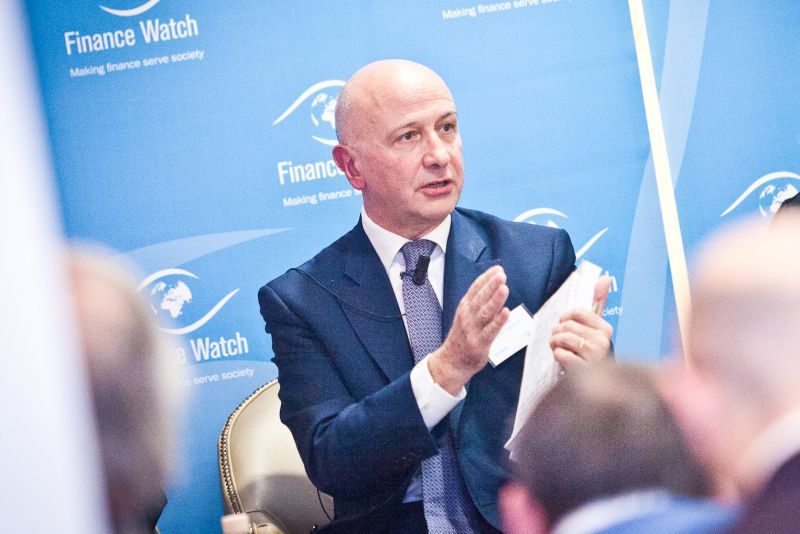
Visit Jean-Louis Bancel's candidature website
The Alliance will choose a new president at its General Assembly in Antalya, Turkey, on November 13th. Jean-Louis Bancel is one of the four candidates for the presidency of the International Co-operative Alliance. In an interview with Co-operative News he discusses the main challenges and opportunities for the global movement.
Mr Bancel is the current chair of Coop Fr, the national federation of French co-operatives. He is also chairing Crédit Cooperatif and the Alliance’s banking sectoral organisation – the International Co-operative Banking Association. Prior to this he has led two major French mutual insurance associations: GEMA (Groupement des entreprises mutuelles d’assurance and FNMF (Fédération nationale de la mutualité française).
Talking about his agenda for the Alliance, Jean-Louis Bancel says that as president he would focus on three aspects: promoting the diversity of entrepreneurship within the movement, strengthening the linguistic and cultural diversity of exchanges and promoting the co-operative model in regions lacking co-operative enterprises.
Mr Bancel thinks that the UN’s International Year of Co-operatives has helped raise the profile of the movement and that now more people see co-operatives as a positive force. However, he warns that co-ops in different states across the world continue to face challenges. Two of such challenges are unfitting legal frameworks and demutualisation.
In Italy popular banks split from co-operative banks in the early 2000s but retained some co-operative features, such as the one member-one vote principle.
In Japan the government is pushing for the country’s agricultural co-operative group, JA-Zenchu, to become a non-profit foundation by 2019. In the UK the Co-operative Group has also made government changes with some members expressing concerns over the society’s new structure. These examples show that in spite of the positive achievement of the past few years, the Alliance must “remain vigilant and active in promoting co-operative principles”, argues Mr Bancel.
He added: “Our achievements and partnerships with the UN and the ILO have resulted in resolutions that are favourable to the sector. Though, an enduring effort is required. Co-operatives are facing challenges”.
Mr Bancel sees co-operatives as an important actor in achieving the UN’s sustainable development agenda, particularly the goal to promote sustained, inclusive and sustainable economic growth, full and productive employment and decent work. According to Mr Bancel, another UN objective which co-ops could help achieve is ensuring sustainable consumption and production.
As well as being referenced in the United Nation’s declarations, co-operatives are also represented at high-level international summits by the Alliance’s policy task forces, of which Mr Bancel is a member.
Mr Bancel: “The global movement is very diverse, including large co-operatives as well as small ones and is also expanding to new sectors. This diversity of the co-operative movement is a true treasure, it will allow us to leverage the strength of our values,” he said. “In France co-operatives of professionals are becoming more and more popular. The big co-ops should appreciate more the value of small co-ops. The Alliance’s role is to enable inter-co-operation between the two groups.” President of Coop FR, Mr Bancel also advocates for a global co-operative congress in 2017. “We must reinforce and strengthen the role of the Alliance’s General Assembly as a knowledge, best-practice and business hub for all co-operatives,” he added.
Governance is a key item on the Alliance’s agenda. “Co-operative governance has to be transparent,” says Mr Bancel. He believes the organisation’s role in providing technical and judicial assistance to co-operatives facing demutualisation will become ever more important. Earlier this year Jean-Louis Bancel was involved in the “Contact & Study group” on Japanese agricultural co-operatives.
“Co-operatives must always, more and better, contribute to meeting human needs today and tomorrow. We need more action (through legislation, finance, and inter co-operation) to eradicate co-operative ‘deserts’ (countries where co-operative activity is low or exceedingly challenging). In the face of the expectations of younger generations for a more human economy, we must propose new co-operative territories of and for development,” said Mr Bancel, adding that the role of the Alliance’s regional offices in achieving this would be crucial.
On 3 December a Crédit Cooperatif working group led by Mr Bancel is to host a co-operatives meeting at the centre for climatic transition at UNESCO, to explore the potential of renewable energy co-operatives. The program includes an international panel of speakers – joining from the USA, France and other European countries. As world leaders will meet in Paris to discuss climate change, co-ops attending the fringe event will also be asked to make pledges.
Engaging with young people is also an important issue for French co-operatives. After he was elected as chair of Coop Fr, Mr Bancel suggested establishing a group of young co-operators. “Many young people do not know this, but co-operatives can bring solutions to a number of problems”. One way to increase awareness about the movement’s achievement is to involve well-known intellectuals, he says. Mr Bancel explained that with many enterprises joining the wider collaborative/sharing economy, co-operatives must engage with the groups that promote informal co-operation as a solution, and at the same time suggest that the co-operative model is the best form to put in practice these principles.
“In the face of the expectations of younger generations for a more human economy, we must propose new co-operative territories of and for development,” he added.




